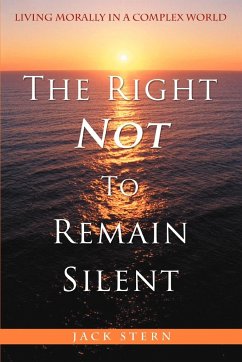The reputation and influence of Emmanuel Levinas (1906-96) have grown powerfully in recent years. Well known in France in his lifetime, he has since his death become widely regarded as a major European moral philosopher profoundly shaped by his Jewish background. A pupil of Husserl and Heidegger, Levinas pioneered new forms of exegesis with his postmodern readings of the Talmud, and as an ethicist brought together religious and non-religious, Jewish and non-Jewish traditions of contemporary thought. Richard A. Cohen has written a book which uses Levinas' work as its base but goes on to explore broader questions of interpretation in the context of text-based ethical thinking. Levinas' reorientation of philosophy is considered in critical contrast to alternative contemporary approaches such as those found in modern science, psychology, Nietzsche, Freud, Husserl, Heidegger, Sartre, Merleau-Ponty, Derrida and Ricoeur. Cohen explores a manner of philosophizing which he terms 'ethical exegesis'.
Table of contents:
Introduction; 1. Philosophy as ethical exegesis; Part I. Exceeding Phenomenology: 2. Bergson and the emergence of an ecological age; 2. Science: phenomenology, intuition, philosophy; 3. The good work of Edmund Husserl: Genesis and exegesis; 4. Better than a questionable Heidegger; Part II. Good and Evil: 5. Alterity and alteration: development of an opus; 6. Maternal body/maternal psyche: contra psychoanalytic philosophy; 7. Humanism and the rights of exegesis; 8. What good is the Holocaust? On suffering and evil; 9. Ricoeur and the lure of self-esteem; Conclusion; Index.
This book expands upon Emmanuel Levinas' work to explore his use of 'ethical exegesis', opening up broader questions of interpretation in ethical thinking. Levinas' views of philosophy are considered in contrast to alternative contemporary approaches, such as those found in modern science, psychology, Nietzsche, Freud, Husserl, Heidegger, Sartre and Derrida.
This book expands upon Levinas' work to explore broader questions of interpretation in ethical thinking.
Table of contents:
Introduction; 1. Philosophy as ethical exegesis; Part I. Exceeding Phenomenology: 2. Bergson and the emergence of an ecological age; 2. Science: phenomenology, intuition, philosophy; 3. The good work of Edmund Husserl: Genesis and exegesis; 4. Better than a questionable Heidegger; Part II. Good and Evil: 5. Alterity and alteration: development of an opus; 6. Maternal body/maternal psyche: contra psychoanalytic philosophy; 7. Humanism and the rights of exegesis; 8. What good is the Holocaust? On suffering and evil; 9. Ricoeur and the lure of self-esteem; Conclusion; Index.
This book expands upon Emmanuel Levinas' work to explore his use of 'ethical exegesis', opening up broader questions of interpretation in ethical thinking. Levinas' views of philosophy are considered in contrast to alternative contemporary approaches, such as those found in modern science, psychology, Nietzsche, Freud, Husserl, Heidegger, Sartre and Derrida.
This book expands upon Levinas' work to explore broader questions of interpretation in ethical thinking.








